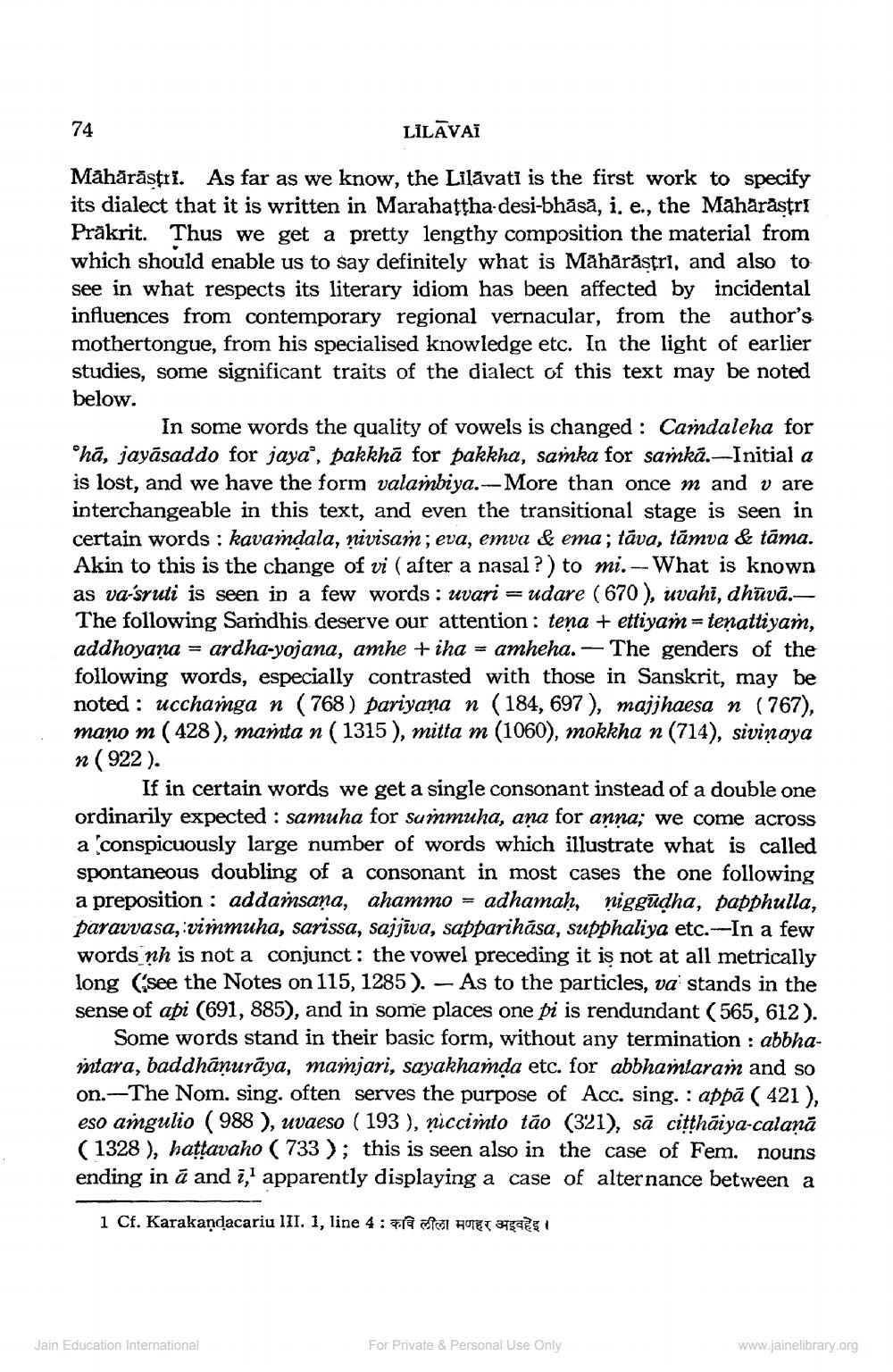________________
74
LĪLĀVAI
O
.
Mahārāsţii. As far as we know, the Lilāvati is the first work to specify its dialect that it is written in Marahattha desi-bhāsā, i. e., the Maharastri Prākrit. Thus we get a pretty lengthy composition the material from which should enable us to say definitely what is Maharastri, and also to see in what respects its literary idiom has been affected by incidental influences from contemporary regional vernacular, from the author's mothertongue, from his specialised knowledge etc. In the light of earlier studies, some significant traits of the dialect of this text may be noted below.
In some words the quality of vowels is changed: Cardaleha for hā, jayāsaddo for jaya", pakkhā for pakkha, samka for samkā.-Initial a is lost, and we have the form valambiya.--- More than once m and v are interchangeable in this text, and even the transitional stage is seen in certain words : kavaídala, nivisam; eva, emva & ema; tāva, tāmva & tāma. Akin to this is the change of vi (after a nasal?) to mi.- What is known as va-sruti is seen in a few words : uvari =udare (670), uvahi, dhūvā. The following Samdhis deserve our attention: tena + ettiyam= tenattiyam, addhoyana = ardha-yojana, amhe + iha = amheha. — The genders of the following words, especially contrasted with those in Sanskrit, may be noted : ucchamga n (768) pariyana n (184, 697 ), majjhaesan (767), mano m (428), maita n (1315), mitta m (1060), mokkha n (714), sivinaya n (922).
If in certain words we get a single consonant instead of a double one ordinarily expected : samuha for summuha, ana for anna; we come across a conspicuously large number of words which illustrate what is called spontaneous doubling of a consonant in most cases the one following a preposition: addamsana, ahammo = adhamah, niggūdha, papphulla, paravvasa, viņmuha, sarissa, sajjīva, sapparihasa, supphaliya etc.--In a few words nh is not a conjunct: the vowel preceding it is not at all metrically long (see the Notes on 115, 1285). - As to the particles, va stands in the sense of api (691, 885), and in some places one pi is rendundant (565, 612).
Some words stand in their basic form, without any termination : abbhaintara, baddhānurāya, mamjari, sayakhaida etc. for abbhamtaram and so on.-The Nom. sing. often serves the purpose of Acc. sing. : appā ( 421), eso aingulio ( 988 ), uvaeso ( 193 ), nicciinto tão (321), sā citthāiya-calaņā (1328 ), haťțavaho ( 733 ); this is seen also in the case of Fem. nouns ending in ā and 7, apparently displaying a case of alternance between a
1 Cf. Karakandacariu III. 1, line 4:7
HOTET 375965
Jain Education International
For Private & Personal Use Only
www.jainelibrary.org




